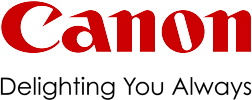Inkjet Printer Software Development Kit: Frequently Asked Questions - Developer Resources
Frequently Asked Questions
General
Are the SDKs on this website applicable to all Canon inkjet printers?
Supported printers for each SDK varies. Developers can submit the application using the online form, and a Canon representative will be in touch to verify the requirements.
I am a developer, and I would like to obtain an SDK to work with Canon inkjet printers, what are the necessary steps?
Developers may run through the list of available SDKs to determine if any are suitable for their projects, before submitting an online application. A Canon representative will be in contact to understand more about the requirements, using the contact details provided. If the application is accepted, the developer may be required to agree to a Non-Disclosure Agreement and Software License Agreement before receiving the requested solution or SDK.
As a developer, can I get technical support from Canon about SDKs?
The developer shall be responsible for use and support of the SDK. Canon is unable to provide any support to the developer for the use and/or maintenance of the SDK, supporting the Developer Software, or correcting any errors or anomalies that may be present in the SDK or the Developer Software.
Is there any sample code provided with SDK?
Yes, most of the SDKs are accompanied with sample application code for Developer’s reference.
Inkjet Device Customisation Tool
What operating systems are supported with the Inkjet Device Customisation Tool?
Currently, Windows 7/8/10 (32/64 bit) are supported. Besides that, .NET Framework 3.5 must be installed and enabled.
What are the functions and interfaces that can be customised using the Inkjet Device Customisation Tool?
Functions and interfaces that can be customised are listed below. However, available functions and interfaces differ between printer models.
- Canon IJ Cloud Printing (Enable/Disable)
- Copy (Enable/Mono only/Disable)
- Scan (Enable/Disable)
- Fax (Enable/Disable)
- Custom Template Print (Enable/Disable)
- Wi-Fi (Enable/Disable)
- Wired LAN (Enable/Disable)
- USB (PC) (Enable/Disable)
- Bluetooth (Enable/Disable)
- USB Memory (Enable/Disable)
Inkjet Print Application SDK for Android
Which OS is supported with Inkjet Print Application SDK for Android?
Android 5 or later (with ARM CPU architecture) is supported by this SDK.
What type of input formats are supported with this SDK?
PDF and JPEG are supported. However, please refer to the supporting document on some limitations.
Inkjet Print Application SDK for iOS
Which OS is supported with Inkjet Print Application SDK for iOS?
iOS 9 or later (32/64 bit) are supported by this SDK. Xcode software (Apple’s integrated development environment for iOS) is required.
What type of input formats are supported with this SDK?
PDF, PNG, JPEG, and HEIF are supported. Please note that input data rendering depends on iOS and the rendering result follows the result of iOS application.
